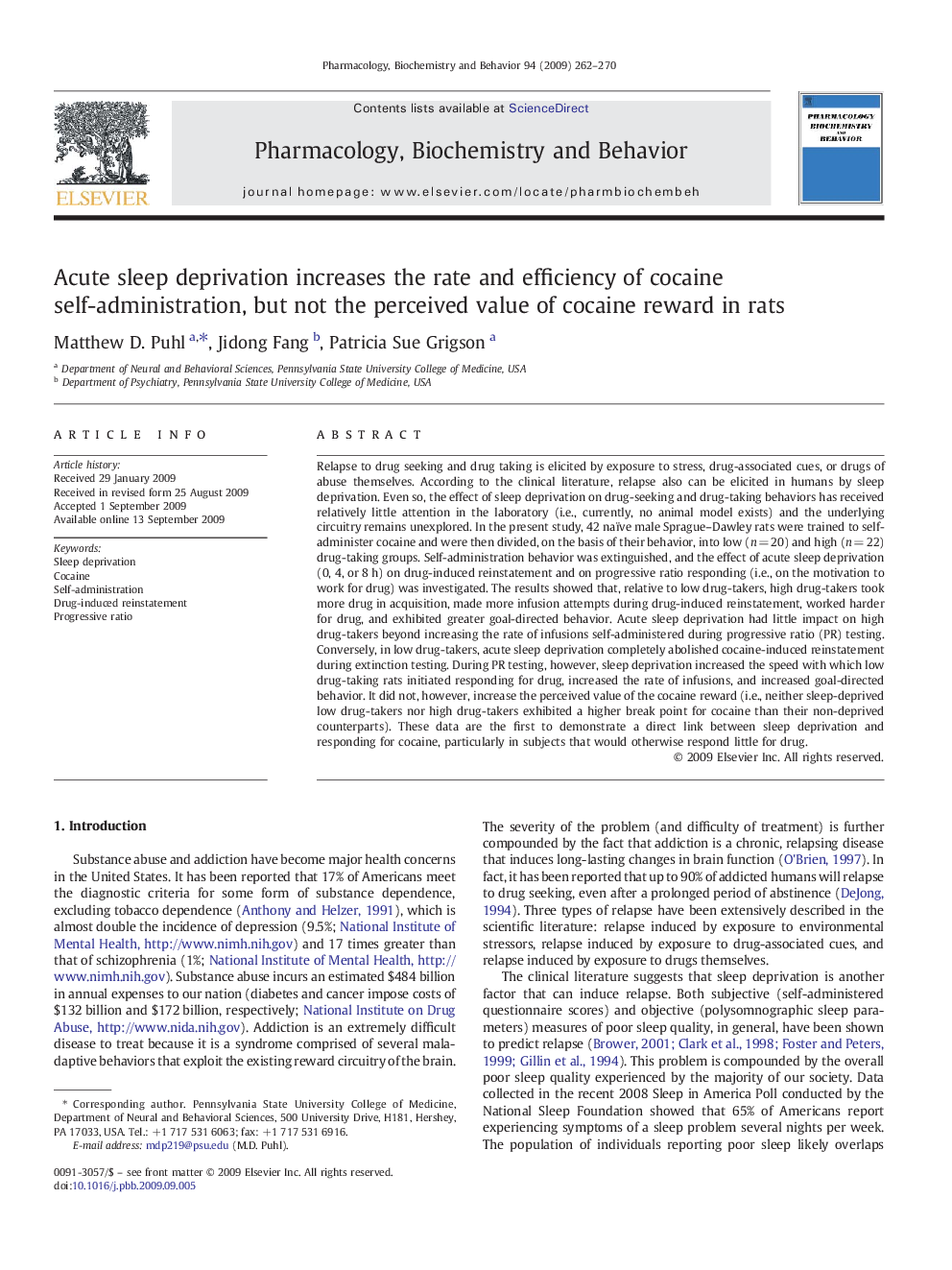| کد مقاله | کد نشریه | سال انتشار | مقاله انگلیسی | نسخه تمام متن |
|---|---|---|---|---|
| 2013531 | 1067120 | 2009 | 9 صفحه PDF | دانلود رایگان |

Relapse to drug seeking and drug taking is elicited by exposure to stress, drug-associated cues, or drugs of abuse themselves. According to the clinical literature, relapse also can be elicited in humans by sleep deprivation. Even so, the effect of sleep deprivation on drug-seeking and drug-taking behaviors has received relatively little attention in the laboratory (i.e., currently, no animal model exists) and the underlying circuitry remains unexplored. In the present study, 42 naïve male Sprague–Dawley rats were trained to self-administer cocaine and were then divided, on the basis of their behavior, into low (n = 20) and high (n = 22) drug-taking groups. Self-administration behavior was extinguished, and the effect of acute sleep deprivation (0, 4, or 8 h) on drug-induced reinstatement and on progressive ratio responding (i.e., on the motivation to work for drug) was investigated. The results showed that, relative to low drug-takers, high drug-takers took more drug in acquisition, made more infusion attempts during drug-induced reinstatement, worked harder for drug, and exhibited greater goal-directed behavior. Acute sleep deprivation had little impact on high drug-takers beyond increasing the rate of infusions self-administered during progressive ratio (PR) testing. Conversely, in low drug-takers, acute sleep deprivation completely abolished cocaine-induced reinstatement during extinction testing. During PR testing, however, sleep deprivation increased the speed with which low drug-taking rats initiated responding for drug, increased the rate of infusions, and increased goal-directed behavior. It did not, however, increase the perceived value of the cocaine reward (i.e., neither sleep-deprived low drug-takers nor high drug-takers exhibited a higher break point for cocaine than their non-deprived counterparts). These data are the first to demonstrate a direct link between sleep deprivation and responding for cocaine, particularly in subjects that would otherwise respond little for drug.
Journal: Pharmacology Biochemistry and Behavior - Volume 94, Issue 2, December 2009, Pages 262–270